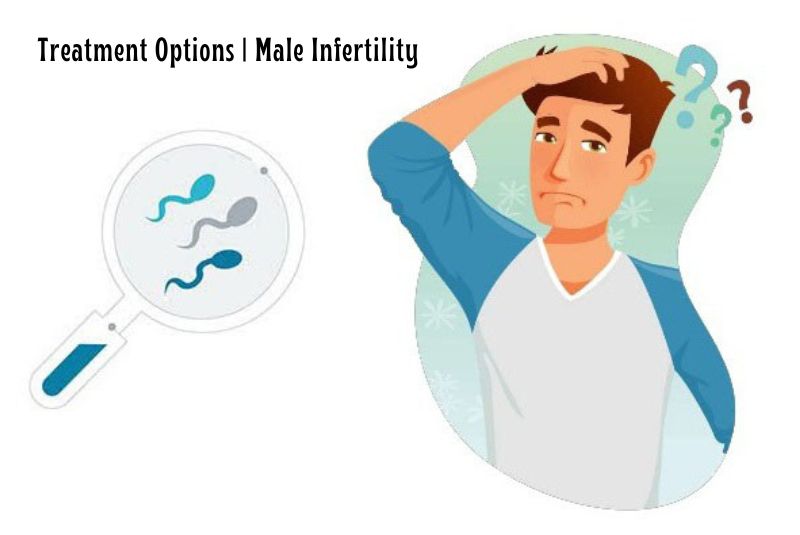Infertility can be a challenging road for couples aspiring to become parents. While discussions often lean towards female infertility, it’s important to shed light on the available treatment options for male infertility. From medical interventions to lifestyle modifications, advancements in reproductive medicine offer hope and possibilities for couples facing male fertility challenges.
Lifestyle Modifications and Behavioral Changes
In some cases, simple lifestyle modifications can have a positive impact on male fertility. Adopting a healthy diet rich in antioxidants, vitamins, and minerals can support sperm health. Reducing alcohol consumption, quitting smoking, and managing stress can also contribute to improved fertility outcomes.
Medication and Hormonal Therapy
Hormonal imbalances can play a significant role in male infertility. Hormonal therapy, under the guidance of a healthcare professional, can help restore proper hormonal levels, thereby enhancing sperm production and quality. For instance, testosterone replacement therapy may be used to address low testosterone levels.
Assisted Reproductive Techniques (ART)
a. Intrauterine Insemination (IUI): In IUI, healthy sperm are collected, processed, and then inserted directly into the woman’s uterus during her fertile window. This procedure can increase the chances of sperm reaching the egg for fertilization.
b. Intracytoplasmic Sperm Injection (ICSI): ICSI is a powerful technique where a single sperm is injected directly into an egg to facilitate fertilization. It’s particularly beneficial for couples dealing with severe male infertility, such as low sperm count or poor sperm motility.
Surgical Interventions
a. Varicocelectomy: If a varicocele is identified as a contributing factor to male infertility, surgical correction can be considered. This procedure involves repairing the enlarged veins in the scrotum, potentially improving sperm production and quality.
b. Sperm Retrieval Procedures: For men with very low or no sperm count in their ejaculate, surgical procedures like testicular sperm extraction (TESE) or epididymal sperm aspiration (TESA) can retrieve sperm directly from the testes or epididymis for use in assisted reproductive techniques.
Genetic Counseling and Testing
Genetic abnormalities can impact fertility. Genetic testing and counseling can provide insights into potential genetic issues that may affect sperm production or the health of future offspring. This information can guide decisions about treatment approaches.
Alternative and Complementary Therapies
Some couples explore alternative therapies, such as acupuncture, herbal supplements, and traditional medicine, as complementary approaches to enhance fertility. It’s important to consult with a healthcare professional before trying any alternative treatments.
Emotional Support and Counseling
Dealing with infertility can be emotionally taxing. Seeking counseling or support groups can provide a safe space to express feelings and cope with the challenges of the journey. Emotional well-being is an essential aspect of the fertility treatment process.
Male infertility is a complex issue with a range of treatment options available. From lifestyle adjustments to advanced medical interventions, couples facing male fertility challenges have reason to remain hopeful. Consulting with a qualified fertility specialist is the first step toward understanding the underlying causes of infertility and designing a personalized treatment plan. The path to parenthood may present challenges, but with the right support and resources, couples can navigate this journey and bring their dreams of starting a family to fruition.

